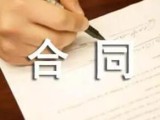the children are to buy some new clothes for the coming spring festival. 春节将至,孩子门将买几件新衣服.明天早晨八点我们将在校门口集合。____________________________________________________________________.二、表示“命令/指示、禁止、职责、义务、同意、决定、某事应当/必须如何做 ( = be to indicates something should / ought to be done)等 ”you are to call your mother to let her know you have safely arrived when you reach the destination.you are to go to the hotel where rooms have already been booked for you. 你们就去旅馆,房间已经给你们订好了。this door is not to be opened. 此门不得打开。你所借的图书应当于7月5日前归还。the books you borrowed ______ ______ ______ ______ before july 5. ex.1“you are _________ all your homework before you leave school,” said the teacher.a. to finish b. finishing c. finished d. finish2 our tv sets sell well, but ten years ago no one could have imagined such a big share in the market that they __________.a. were having b. had had c. were to have d. had3. if you ________ be in time for the early bus, be sure to get up before five o’clock in the morning. a. are to b. are about to c. are going to d. are due to4. in a room above the store, where a party _______, some workers were busily setting the table. a. was to be held b. has been held c. will be held d. is being held5. he traveled to many mountain villages and saw many poor children out of school. this experience _______ his life. a. would change b. had changed c. was to change d. was changingthis is not a family where bad behavior goes unpunished and you … (pages 22 – 23, lines 28 – 29) 这个家可不是一个对不良行为听之任之的地方,而你……go unpunished in the phrase go unpunished, go is a linking verb meaning ‘be or remain in a particular and usually undesirable state’. 不受惩罚go + 过去分词her decision went unchallenged. 她的决定未引起异议。
her complaints went unnoticed. 他的抱怨未引起注意。it is necessary not to let errors go uncorrected. 有了错误就必须纠正。go 连系动词 “变,变成”,后多跟形容词作表语,表示主语由好变坏,或由正常情况变成特殊情况。还可以跟有关颜色的形容词。become 和 get的变化可以是由好变坏,也可以是由坏变好。go wrong / cold / hard / red / mad / blind / bad / hungry 出毛病 / 变冷 / 变硬 / 变红 / 发疯 / 变瞎 / 变坏 / 挨饿many people are still going hungry all over the world. 世界上很多人仍在挨饿。my father went grey when he was in his late thirties. 我父亲不到四十岁就两鬓斑白了。he went pale at the news. 听到这消息他脸色发白。他听到这个消息时几乎发疯了。_________________________________________________.ex.1. on hearing the news of the accident in the coal mine, she pale.a. got b. changed c. went d. appearedlisten to me young man ---remember the day when we left you in charge? 听我说年轻人——还记得那一天我们将这个家委托你负责的吗?leave 用作使役动词,表示“使某人/某物继续处于某种状态,听任,让……做……”,其后可以接名词、形容词、副词、介词短语、现在分词、过去分词、不定式等作宾语的补足语,构成“leave + 复合宾语”结构。jack’s father died, leaving him an orphan. 杰克的父亲去世了,使他成为孤儿。who was it that left the door open? 是谁让门开着? the boys ran out, leaving all the lights on.he left his son in charge of the shop. the poor farmer died, leaving his wife and three children in poorer conditions.don’t leave your friend waiting outside. let her in. her mother walked off and left her sitting there all by herself, crying. 她妈妈走了,让她一个人孤零零地坐在那里哭泣。he hurried off after receiving a phone call, leaving all his work half done.better leave it unsaid. [谚] 话还是不讲出来为好。leave future to take care of itself. 让未来自然发展。she left me to take care of the baby. 她托我照顾她的婴儿。eric sits on his bed looking at daniel, who has his arms crossed and looks angry. (page 23, lines 36 – 37) 埃里克坐在床上,瞧着双臂交叉、一脸怒气的丹尼尔。looking at daniel为现在分词短语,在句中作伴随状语,表示与主句同时发生的动作。he sat there doing his homework. writing his composition. 等汽车。________________. 看报。__________________. 观看女学生打篮球。____________________________________.she finished all her work, feeling quite relaxed. 她完成了全部工作,感到松了一口气。the children reviewed their lessons in the classroom, reading, writing or listening to the tape. 孩子们在教室里复习功课,读书,写字或听录音。have sth done 有“主语请求别人做某事”和表示主语“遭遇某种(不幸的)事情”等多种意思。the smiths had/got their house painted yesterday. 史密斯一家昨天请人油漆了房屋。––– your skirt wants/needs washing, mary.––– yes. i’m going to have it washed tomorrow.mary had her purse/watch stolen on the bus yesterday. would you please have the window closed? ex.1the secretary worked late into the night, _______ a long speech for the president. a. to prepare b. preparing c. prepared d. was preparing 2the visiting minister expressed his satisfaction with the talks, ________ that he had enjoyed his stay here.a. having added b. to add c. adding d. added3. my wife is planning to have the furniture ________ light green.a. paint b. painted c. painting d. to paint4. i have a composition _______ this afternoon and i won’t have my hair ___________.a. written; cut b. to write; cut c. to write; to cut d. written; to cut5. ––– did peter fix the computer himself? ––– he ______, because he doesn’t know much about computers. a. has it fixed b. had fixed it c. had it fixed d. fixed itwe feel you should not have done that. (page 24) 我们觉得你真不应该这样做。should/ ought to have done sth 意为“本来应该干……,但未……”shouldn’t/ oughtn’t to + have done sth “本来不应该做……却做了”i wonder why she hasn’t written to us lately. we should have heard from her by now. i ought to have phoned jack this morning, but i forgot. she shouldn’t have left the hospital so soon, for she had not yet recovered he didn’t attend the meeting. he shouldn’t have been absent, because he knew how important the meeting was. ex.1. i told your friend how to get to the hotel, but perhaps i ______ have driven her there. a. could b. must c. night d. should2. mr. white _________ at 8:30 for the meeting, but he didn’t’ show up.(全国) a. should have arrived b. should arrive c. should have had arrived d. should be arriving 3. ––– jack _____ taken to the hospital immediately.––– ________, but all efforts made no difference.a. ought to have been; so he was b. ought to be; so he ought toc. ought to have been; so he did d. ought to be; so he was4. ––– my cat’s really fat. ––– you ______ have given her so much food. (浙江) a. wouldn’t b. couldn’t c. shouldn’t d. mustn’t i still wish we could go and see a film tomorrow though! (page 31) 但我还是希望明天能去看电影。though adv.“然而,可是,但是”,用于句末补充说明,使语气削弱。we lost the game. we learned a lot from it though. this is the third time that jack has failed the driving test. he is not discouraged, though. 比较下列句子中though作连词和副词的用法:though it was raining hard, the players didn’t stop the game. it was raining hard. the players didn’t stop the game, though.ex.1. though he is in his sixties, _____ he works as hard as a young man.a. yet b. but c. and d. and yet2. ––– you don’t seem to be quite yourself today. anything the matter? ––– i’m suffering from a cold. nothing serious, _______. a. yet b. though c. instead d. either3. ––– how is everything going on with you in europe? ––– quite well. not so smoothly as i hoped, _________.( 江苏) a. though b. instead c. either d. toorecently he has been refusing to do his homework, and instead insists on wasting his time watching dvds and listening to foreign music. (page 38) 最近,他就是不做作业,而是把时间浪费在看dvd、听外国音乐上。现在完成进行时构成:have been doing sth.用法:表示从过去某一时间开始一直延续到现在的动作。这个动作可能刚刚结束,也可能仍在继续,并可能延续到将来。(表示到现在为止一直在发生或反复进行的动作)––– how long have you been waiting here?––– i have been waiting here for about half an hour. 你在这儿等多久了?我在这儿大概等了半个小时。professor wang has been doing the research on english literature for more than 30 years. he has written more than 10 books, some of which have been published in england and the usa in recent years. now he is teaching english literature in a famous university.比较下列各句,注意现在完成时和现在完成进行时在时间概念上的区别:i’ve written an article. 我写好了一篇文章。(现在已经写完了)i’ve been writing an article. 我一直在写一篇文章。(现在还在写)ex.1. ––– hi, alan, i have not seen you for weeks. what _______ recently?––– studying. a. have you been doing b. have you donec. were you doing d. did you do2. ––– hi, tracy, you look tired.––– i am tired. i _______ the living room all day. a. painted b. had paintedc. have been painting &nb(请记得收藏本站-一路高升范文网,以获取更多新鲜内容)sp; d. have painted3. i won’t tell the student the answer to the math problem until he ___ on it for more than an hour. ( 湖北)a. has been working b. will have worked c. will have been working d. had worked4. ––– i have got a headache. ––– no wonder. you ______ in front of that computer too long. ( 江西) a. work b. are working c. have been working d. worked答案:expect: 1. c 2. b 3. cfollowed by …/ walking: a. followed b. following 1 – 5 dbcbbbe supposed t we were supposed to be here at eight, but we are late. 1 – 4 acca“be + 不定式”结构: 1. we are to meet at the school gate at eight o’clock tomorrow morning. 2. are to be returned1 – 5 acaacgo + 过去分词: he went almost mad when he heard the news. ex. 1. c现在分词短语,在句中作伴随状语: 1. waiting for the bus. 2. reading newspaper. 3. watching the girl students playing basketball.1 – 5 bcbbcshould/ ought to have done sth: 1 – 4 daacthough adv: 1 – 3 aba现在完成进行时: 1 – 4 acac
推荐站内搜索:成人高考试题下载、浙江省会考成绩查询、中国研究生招生信息网、爱国演讲稿500字、南昌大学科学技术学院分数线、高考网首页、假如我是一坨屎作文、执业药师报名入口、河南自考、贵州省自考成绩查询、


 Module 1 Unit 2 Growindowsg pains
Module 1 Unit 2 Growindowsg pains



